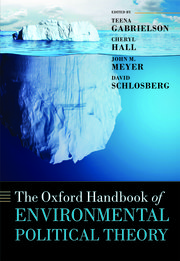Oxford Handbook Of International Relations
Table of Contents for The Oxford handbook of international relations / edited by Christian Reus-Smit and Duncan Snidal, available from the Library of Congress. Table of contents for The Oxford handbook of international relations / edited by Christian Reus-Smit and Duncan Snidal.
Page/Link: Page URL: HTML link: The Free Library. Retrieved Jan 10 2019 from If International Relations as a scholarly endeavor is to remain relevant it must speak to today's most pressing dilemmas of political action in world politics: theoretically, analytically, and practically. How should we combat terrorism? When, if ever, is humanitarian intervention justified? How should we address the transborder movement of peoples? What is an appropriate response to global climate change?

Oxford Handbook Of International Relations Download
What should the international community do about 'failed states'? How should we respond to persistent global poverty and political alienation? How do we reconcile trade liberalization and environmental protection? Who is the 'we' that has responsibility for acting in such situations? If it is to speak to such questions--if it is to be a practical discourse--International Relations needs to be more than an explanatory project; it has to occupy the difficult terrain between empirical and normative inquiry.
In whichever context it arises, the question of 'how we should act' requires both an appreciation of the political conditions of action and an understanding of the good(s) we wish to achieve. Empirical theory and inquiry contributes to the first of these tasks, but it is normative inquiry that illuminates the second. Carr observed long ago, if International Relations as a political science is to speak to the most pressing issues of international political action, it must be a science 'not only of what is, but of what ought to be.' The tale of International Relations since the Second World War is a contradictory one, though. On the one hand, the field has lost sight of the practical intent that characterized its early years and of the imperative that a practical discourse must integrate empirical and normative inquiry. Within the (largely American) mainstream, the pursuit of explanatory theory has been privileged, with systematic and self-conscious normative reflection on international politics delegated to political philosophers.
On the other hand, the practical intent of the field has persisted, usually at an implicit, even subconscious level. Whether realists or poststructuralists, constructivists or liberals, international relations scholars have repeatedly proffered answers to the question of how we should act. Often unwittingly, they have been drawn on to the terrain between empirical and normative theory and inquiry.
The product of these contradictory trends is a field that champions the pursuit of purely empirical or explanatory theory, but one that is shot through with normative assumptions, propositions, and arguments. Although we address the problem primarily from the perspective of International Relations, our critique applies equally to those who have pursued normative inquiries of international issues but have neglected the need to root those firmly in empirical and positive knowledge.
Insofar as normative theory seeks to contribute to a practical discourse, as opposed to a purely idealist one, it too must engage the other side. Aplikasi bokep pc. Only the combination of normative and positive theory provides a sound basis for action.
THE OXFORD HANDBOOK OF INTERNATIONAL RELATIONS The invitation to create the Oxford Handbook posed a number of challenges for us. Some were logistical: We had never met and were situated on opposite sides of the globe.